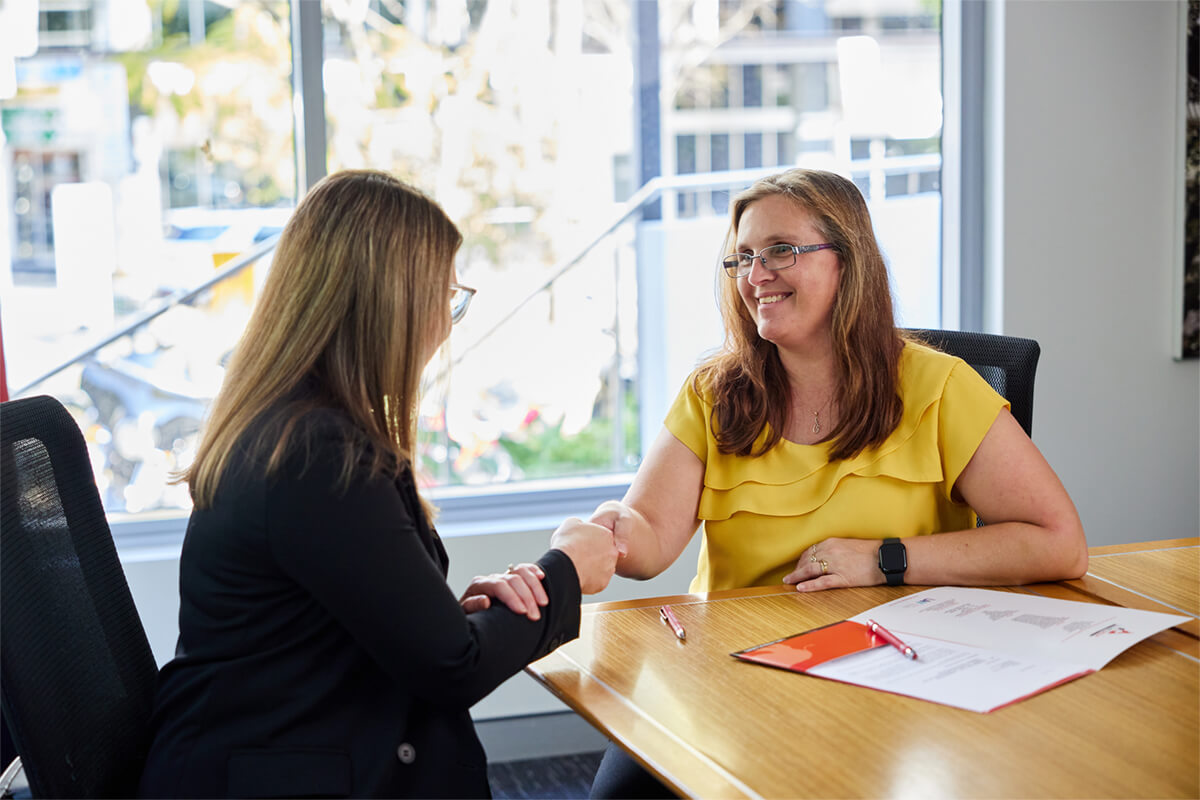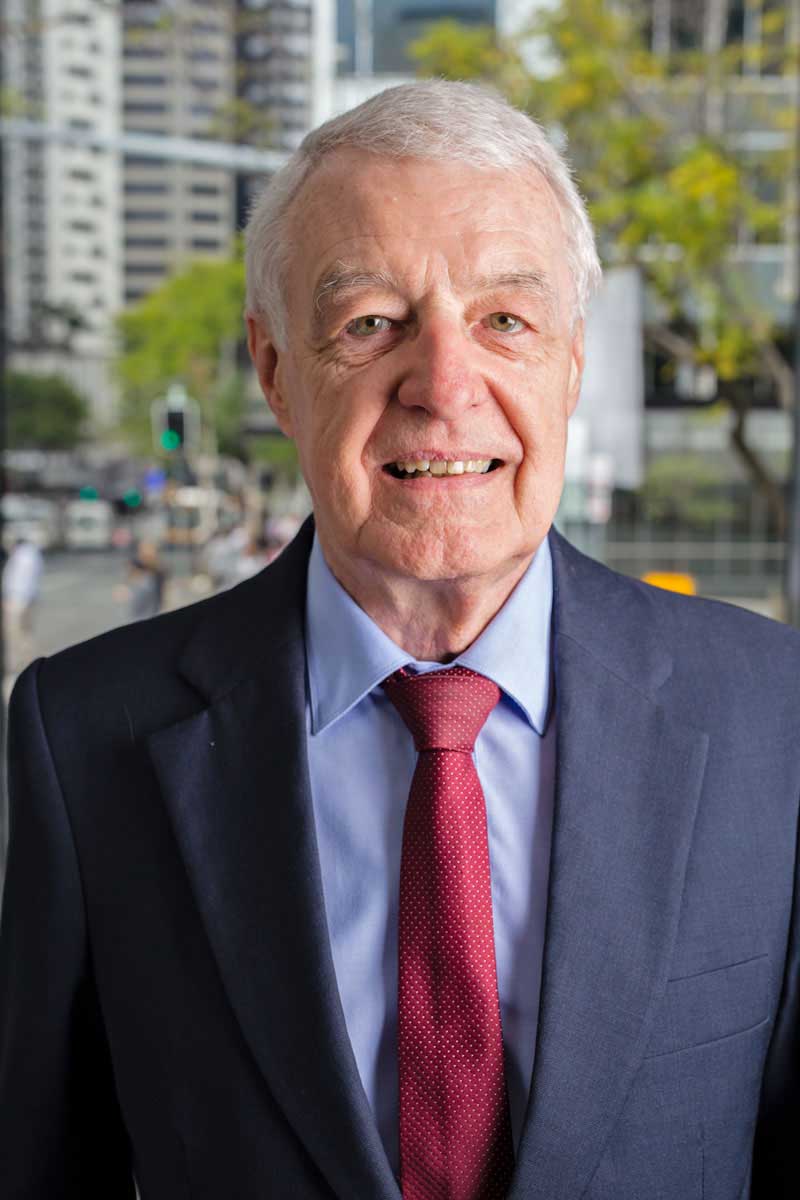[et_pb_section bb_built=”1″ _builder_version=”3.22.2″ module_id=”legalquestion-pop” z_index_tablet=”500″ inner_width=”auto” inner_max_width=”none”][et_pb_row _builder_version=”3.22.2″ width=”100%” z_index_tablet=”500″ max_width=”2112px”][et_pb_column type=”4_4″][et_pb_text admin_label=”Request a Free Call Back” _builder_version=”3.22.2″ text_font=”Bebas Bold|700||on|||||” text_text_color=”#ee2d26″ text_text_shadow_horizontal_length=”text_text_shadow_style,%91object Object%93″ text_text_shadow_vertical_length=”text_text_shadow_style,%91object Object%93″ text_text_shadow_blur_strength=”text_text_shadow_style,%91object Object%93″ link_text_shadow_horizontal_length=”link_text_shadow_style,%91object Object%93″ link_text_shadow_vertical_length=”link_text_shadow_style,%91object Object%93″ link_text_shadow_blur_strength=”link_text_shadow_style,%91object Object%93″ ul_text_shadow_horizontal_length=”ul_text_shadow_style,%91object Object%93″ ul_text_shadow_vertical_length=”ul_text_shadow_style,%91object Object%93″ ul_text_shadow_blur_strength=”ul_text_shadow_style,%91object Object%93″ ol_text_shadow_horizontal_length=”ol_text_shadow_style,%91object Object%93″ ol_text_shadow_vertical_length=”ol_text_shadow_style,%91object Object%93″ ol_text_shadow_blur_strength=”ol_text_shadow_style,%91object Object%93″ quote_text_shadow_horizontal_length=”quote_text_shadow_style,%91object Object%93″ quote_text_shadow_vertical_length=”quote_text_shadow_style,%91object Object%93″ quote_text_shadow_blur_strength=”quote_text_shadow_style,%91object Object%93″ header_text_shadow_horizontal_length=”header_text_shadow_style,%91object Object%93″ header_text_shadow_vertical_length=”header_text_shadow_style,%91object Object%93″ header_text_shadow_blur_strength=”header_text_shadow_style,%91object Object%93″ header_2_text_shadow_horizontal_length=”header_2_text_shadow_style,%91object Object%93″ header_2_text_shadow_vertical_length=”header_2_text_shadow_style,%91object Object%93″ header_2_text_shadow_blur_strength=”header_2_text_shadow_style,%91object Object%93″ header_3_text_shadow_horizontal_length=”header_3_text_shadow_style,%91object Object%93″ header_3_text_shadow_vertical_length=”header_3_text_shadow_style,%91object Object%93″ header_3_text_shadow_blur_strength=”header_3_text_shadow_style,%91object Object%93″ header_4_text_shadow_horizontal_length=”header_4_text_shadow_style,%91object Object%93″ header_4_text_shadow_vertical_length=”header_4_text_shadow_style,%91object Object%93″ header_4_text_shadow_blur_strength=”header_4_text_shadow_style,%91object Object%93″ header_5_text_shadow_horizontal_length=”header_5_text_shadow_style,%91object Object%93″ header_5_text_shadow_vertical_length=”header_5_text_shadow_style,%91object Object%93″ header_5_text_shadow_blur_strength=”header_5_text_shadow_style,%91object Object%93″ header_6_text_shadow_horizontal_length=”header_6_text_shadow_style,%91object Object%93″ header_6_text_shadow_vertical_length=”header_6_text_shadow_style,%91object Object%93″ header_6_text_shadow_blur_strength=”header_6_text_shadow_style,%91object Object%93″ z_index_tablet=”500″ text_font_size=”25px” text_orientation=”center” custom_padding=”||10px|” disabled_on=”on|on|on” disabled=”on”]
Have A Legal Question?
[/et_pb_text][et_pb_contact_form _builder_version=”3.22.2″ submit_button_text=”Submit” text_orientation=”left” text_shadow_horizontal_length=”text_shadow_style,%91object Object%93″ text_shadow_vertical_length=”text_shadow_style,%91object Object%93″ text_shadow_blur_strength=”text_shadow_style,%91object Object%93″ title_text_shadow_horizontal_length=”title_text_shadow_style,%91object Object%93″ title_text_shadow_vertical_length=”title_text_shadow_style,%91object Object%93″ title_text_shadow_blur_strength=”title_text_shadow_style,%91object Object%93″ form_field_text_shadow_horizontal_length=”form_field_text_shadow_style,%91object Object%93″ form_field_text_shadow_vertical_length=”form_field_text_shadow_style,%91object Object%93″ form_field_text_shadow_blur_strength=”form_field_text_shadow_style,%91object Object%93″ button_text_shadow_horizontal_length=”button_text_shadow_style,%91object Object%93″ button_text_shadow_vertical_length=”button_text_shadow_style,%91object Object%93″ button_text_shadow_blur_strength=”button_text_shadow_style,%91object Object%93″ z_index_tablet=”500″ captcha=”off” custom_button=”on” button_text_color=”#ffffff” button_font=”|||on|||||” custom_css_contact_button=”color: #fff;” form_field_font=”Gravity Book||||||||” module_id=”legalquestion-pop” disabled_on=”on|on|on” disabled=”on”][et_pb_contact_field field_title=”Name*” field_type=”input” field_id=”Your_Name” required_mark=”on” fullwidth_field=”on” _builder_version=”3.22.2″ checkbox_checked=”off” checkbox_options=”%91{%22value%22:%22Name%22,%22checked%22:0}%93″ radio_options=”%91{%22value%22:%22Name%22,%22checked%22:0}%93″ select_options=”%91{%22value%22:%22Name%22,%22checked%22:0}%93″ min_length=”0″ max_length=”0″ allowed_symbols=”all” conditional_logic=”off” conditional_logic_relation=”off” link_option_url_new_window=”off” use_background_color_gradient=”off” background_color_gradient_start=”#2b87da” background_color_gradient_end=”#29c4a9″ background_color_gradient_type=”linear” background_color_gradient_direction=”180deg” background_color_gradient_direction_radial=”center” background_color_gradient_start_position=”0%” background_color_gradient_end_position=”100%” background_color_gradient_overlays_image=”off” parallax=”off” parallax_method=”on” background_size=”cover” background_position=”center” background_repeat=”no-repeat” background_blend=”normal” allow_player_pause=”off” background_video_pause_outside_viewport=”on” form_field_text_shadow_style=”none” form_field_text_shadow_horizontal_length=”form_field_text_shadow_style,%91object Object%93″ form_field_text_shadow_vertical_length=”form_field_text_shadow_style,%91object Object%93″ form_field_text_shadow_blur_strength=”form_field_text_shadow_style,%91object Object%93″ box_shadow_style=”none” box_shadow_horizontal=”box_shadow_style,%91object Object%93″ box_shadow_vertical=”box_shadow_style,%91object Object%93″ box_shadow_blur=”box_shadow_style,%91object Object%93″ box_shadow_spread=”box_shadow_style,%91object Object%93″ hover_transition_duration=”300ms” hover_transition_delay=”0ms” hover_transition_speed_curve=”ease” conditional_logic_rules=”%91{%22field%22:%22your_email%22,%22condition%22:%22is%22,%22value%22:%22%22}%93″ form_field_font=”||||||||” /][et_pb_contact_field _builder_version=”3.22.2″ field_id=”your_email” field_title=”Email” field_type=”input” checkbox_checked=”off” checkbox_options=”%91{%22value%22:%22%22,%22checked%22:0}%93″ radio_options=”%91{%22value%22:%22%22,%22checked%22:0}%93″ select_options=”%91{%22value%22:%22%22,%22checked%22:0}%93″ min_length=”0″ max_length=”0″ allowed_symbols=”all” required_mark=”off” conditional_logic=”off” conditional_logic_relation=”off” conditional_logic_rules=”%91{%22field%22:%22your_name%22,%22condition%22:%22is%22,%22value%22:%22%22}%93″ link_option_url_new_window=”off” use_background_color_gradient=”off” background_color_gradient_start=”#2b87da” background_color_gradient_end=”#29c4a9″ background_color_gradient_type=”linear” background_color_gradient_direction=”180deg” background_color_gradient_direction_radial=”center” background_color_gradient_start_position=”0%” background_color_gradient_end_position=”100%” background_color_gradient_overlays_image=”off” parallax=”off” parallax_method=”on” background_size=”cover” background_position=”center” background_repeat=”no-repeat” background_blend=”normal” allow_player_pause=”off” background_video_pause_outside_viewport=”on” fullwidth_field=”on” form_field_text_shadow_style=”none” form_field_text_shadow_horizontal_length=”form_field_text_shadow_style,%91object Object%93″ form_field_text_shadow_vertical_length=”form_field_text_shadow_style,%91object Object%93″ form_field_text_shadow_blur_strength=”form_field_text_shadow_style,%91object Object%93″ box_shadow_style=”none” box_shadow_horizontal=”box_shadow_style,%91object Object%93″ box_shadow_vertical=”box_shadow_style,%91object Object%93″ box_shadow_blur=”box_shadow_style,%91object Object%93″ box_shadow_spread=”box_shadow_style,%91object Object%93″ hover_transition_duration=”300ms” hover_transition_delay=”0ms” hover_transition_speed_curve=”ease” form_field_font=”||||||||” /][et_pb_contact_field _builder_version=”3.22.2″ field_id=”your_phone” field_title=”Phone” field_type=”input” checkbox_checked=”off” checkbox_options=”%91{%22value%22:%22%22,%22checked%22:0}%93″ radio_options=”%91{%22value%22:%22%22,%22checked%22:0}%93″ select_options=”%91{%22value%22:%22%22,%22checked%22:0}%93″ min_length=”0″ max_length=”0″ allowed_symbols=”all” required_mark=”off” conditional_logic=”off” conditional_logic_relation=”off” conditional_logic_rules=”%91{%22field%22:%22yourname%22,%22condition%22:%22is%22,%22value%22:%22%22}%93″ link_option_url_new_window=”off” use_background_color_gradient=”off” background_color_gradient_start=”#2b87da” background_color_gradient_end=”#29c4a9″ background_color_gradient_type=”linear” background_color_gradient_direction=”180deg” background_color_gradient_direction_radial=”center” background_color_gradient_start_position=”0%” background_color_gradient_end_position=”100%” background_color_gradient_overlays_image=”off” parallax=”off” parallax_method=”on” background_size=”cover” background_position=”center” background_repeat=”no-repeat” background_blend=”normal” allow_player_pause=”off” background_video_pause_outside_viewport=”on” fullwidth_field=”off” form_field_font=”||||||||” form_field_text_shadow_style=”none” form_field_text_shadow_horizontal_length=”form_field_text_shadow_style,%91object Object%93″ form_field_text_shadow_vertical_length=”form_field_text_shadow_style,%91object Object%93″ form_field_text_shadow_blur_strength=”form_field_text_shadow_style,%91object Object%93″ box_shadow_style=”none” box_shadow_horizontal=”box_shadow_style,%91object Object%93″ box_shadow_vertical=”box_shadow_style,%91object Object%93″ box_shadow_blur=”box_shadow_style,%91object Object%93″ box_shadow_spread=”box_shadow_style,%91object Object%93″ hover_transition_duration=”300ms” hover_transition_delay=”0ms” hover_transition_speed_curve=”ease” /][et_pb_contact_field _builder_version=”3.22.2″ field_id=”suburb” field_title=”Suburb*” field_type=”input” checkbox_checked=”off” checkbox_options=”%91{%22value%22:%22%22,%22checked%22:0}%93″ radio_options=”%91{%22value%22:%22%22,%22checked%22:0}%93″ select_options=”%91{%22value%22:%22%22,%22checked%22:0}%93″ min_length=”0″ max_length=”0″ allowed_symbols=”all” required_mark=”on” conditional_logic=”off” conditional_logic_relation=”off” conditional_logic_rules=”%91{%22field%22:%22yourname%22,%22condition%22:%22is%22,%22value%22:%22%22}%93″ link_option_url_new_window=”off” use_background_color_gradient=”off” background_color_gradient_start=”#2b87da” background_color_gradient_end=”#29c4a9″ background_color_gradient_type=”linear” background_color_gradient_direction=”180deg” background_color_gradient_direction_radial=”center” background_color_gradient_start_position=”0%” background_color_gradient_end_position=”100%” background_color_gradient_overlays_image=”off” parallax=”off” parallax_method=”on” background_size=”cover” background_position=”center” background_repeat=”no-repeat” background_blend=”normal” allow_player_pause=”off” background_video_pause_outside_viewport=”on” fullwidth_field=”off” form_field_font=”||||||||” form_field_text_shadow_style=”none” form_field_text_shadow_horizontal_length=”form_field_text_shadow_style,%91object Object%93″ form_field_text_shadow_vertical_length=”form_field_text_shadow_style,%91object Object%93″ form_field_text_shadow_blur_strength=”form_field_text_shadow_style,%91object Object%93″ box_shadow_style=”none” box_shadow_horizontal=”box_shadow_style,%91object Object%93″ box_shadow_vertical=”box_shadow_style,%91object Object%93″ box_shadow_blur=”box_shadow_style,%91object Object%93″ box_shadow_spread=”box_shadow_style,%91object Object%93″ hover_transition_duration=”300ms” hover_transition_delay=”0ms” hover_transition_speed_curve=”ease” /][et_pb_contact_field _builder_version=”3.22.2″ field_id=”your_question” field_title=”What’s happened?” field_type=”text” checkbox_checked=”off” checkbox_options=”%91{%22value%22:%22%22,%22checked%22:0}%93″ radio_options=”%91{%22value%22:%22%22,%22checked%22:0}%93″ select_options=”%91{%22value%22:%22%22,%22checked%22:0}%93″ min_length=”0″ max_length=”0″ allowed_symbols=”all” required_mark=”on” conditional_logic=”off” conditional_logic_relation=”off” conditional_logic_rules=”%91{%22field%22:%22yourname%22,%22condition%22:%22is%22,%22value%22:%22%22}%93″ link_option_url_new_window=”off” use_background_color_gradient=”off” background_color_gradient_start=”#2b87da” background_color_gradient_end=”#29c4a9″ background_color_gradient_type=”linear” background_color_gradient_direction=”180deg” background_color_gradient_direction_radial=”center” background_color_gradient_start_position=”0%” background_color_gradient_end_position=”100%” background_color_gradient_overlays_image=”off” parallax=”off” parallax_method=”on” background_size=”cover” background_position=”center” background_repeat=”no-repeat” background_blend=”normal” allow_player_pause=”off” background_video_pause_outside_viewport=”on” fullwidth_field=”off” form_field_font=”||||||||” form_field_text_shadow_style=”none” form_field_text_shadow_horizontal_length=”form_field_text_shadow_style,%91object Object%93″ form_field_text_shadow_vertical_length=”form_field_text_shadow_style,%91object Object%93″ form_field_text_shadow_blur_strength=”form_field_text_shadow_style,%91object Object%93″ box_shadow_style=”none” box_shadow_horizontal=”box_shadow_style,%91object Object%93″ box_shadow_vertical=”box_shadow_style,%91object Object%93″ box_shadow_blur=”box_shadow_style,%91object Object%93″ box_shadow_spread=”box_shadow_style,%91object Object%93″ hover_transition_duration=”300ms” hover_transition_delay=”0ms” hover_transition_speed_curve=”ease” /][/et_pb_contact_form][et_pb_contact_form _builder_version=”3.24.1″ text_shadow_horizontal_length=”text_shadow_style,%91object Object%93″ text_shadow_vertical_length=”text_shadow_style,%91object Object%93″ text_shadow_blur_strength=”text_shadow_style,%91object Object%93″ title_text_shadow_horizontal_length=”title_text_shadow_style,%91object Object%93″ title_text_shadow_vertical_length=”title_text_shadow_style,%91object Object%93″ title_text_shadow_blur_strength=”title_text_shadow_style,%91object Object%93″ form_field_text_shadow_horizontal_length=”form_field_text_shadow_style,%91object Object%93″ form_field_text_shadow_vertical_length=”form_field_text_shadow_style,%91object Object%93″ form_field_text_shadow_blur_strength=”form_field_text_shadow_style,%91object Object%93″ button_text_shadow_horizontal_length=”button_text_shadow_style,%91object Object%93″ button_text_shadow_vertical_length=”button_text_shadow_style,%91object Object%93″ button_text_shadow_blur_strength=”button_text_shadow_style,%91object Object%93″ z_index_tablet=”500″ custom_button=”on” button_text_color=”#ffffff” button_use_icon=”off” email=”info@qldlawgroup.com.au” title=”Request A Home Visit” captcha_text_shadow_horizontal_length=”captcha_text_shadow_style,%91object Object%93″ captcha_text_shadow_horizontal_length_tablet=”0px” captcha_text_shadow_vertical_length=”captcha_text_shadow_style,%91object Object%93″ captcha_text_shadow_vertical_length_tablet=”0px” captcha_text_shadow_blur_strength=”captcha_text_shadow_style,%91object Object%93″ captcha_text_shadow_blur_strength_tablet=”1px” box_shadow_horizontal_button_tablet=”0px” box_shadow_vertical_button_tablet=”0px” box_shadow_blur_button_tablet=”40px” box_shadow_spread_button_tablet=”0px” box_shadow_horizontal_tablet=”0px” box_shadow_vertical_tablet=”0px” box_shadow_blur_tablet=”40px” box_shadow_spread_tablet=”0px” custom_message=”%22Request A Home Visit%22||et_pb_line_break_holder||||et_pb_line_break_holder||Name: %%name%%||et_pb_line_break_holder||Email Address: %%Email%%||et_pb_line_break_holder||Phone Number: %%phone%%||et_pb_line_break_holder||Suburb: %%suburb%%||et_pb_line_break_holder||What's happened?: %%query%%”][et_pb_contact_field field_title=”Name” field_type=”input” field_id=”name” required_mark=”on” fullwidth_field=”off” _builder_version=”3.23.3″ checkbox_checked=”off” checkbox_options=”%91{%22value%22:%22Name%22,%22checked%22:0}%93″ radio_options=”%91{%22value%22:%22Name%22,%22checked%22:0}%93″ select_options=”%91{%22value%22:%22Name%22,%22checked%22:0}%93″ min_length=”0″ max_length=”0″ allowed_symbols=”all” conditional_logic=”off” conditional_logic_relation=”off” conditional_logic_rules=”%91{%22field%22:%22email%22,%22condition%22:%22is%22,%22value%22:%22%22}%93″ link_option_url_new_window=”off” use_background_color_gradient=”off” background_color_gradient_start=”#2b87da” background_color_gradient_end=”#29c4a9″ background_color_gradient_type=”linear” background_color_gradient_direction=”180deg” background_color_gradient_direction_radial=”center” background_color_gradient_start_position=”0%” background_color_gradient_end_position=”100%” background_color_gradient_overlays_image=”off” parallax=”off” parallax_method=”on” background_size=”cover” background_position=”center” background_repeat=”no-repeat” background_blend=”normal” allow_player_pause=”off” background_video_pause_outside_viewport=”on” form_field_text_shadow_style=”none” form_field_text_shadow_horizontal_length=”form_field_text_shadow_style,%91object Object%93″ form_field_text_shadow_vertical_length=”form_field_text_shadow_style,%91object Object%93″ form_field_text_shadow_blur_strength=”form_field_text_shadow_style,%91object Object%93″ box_shadow_style=”none” box_shadow_horizontal=”box_shadow_style,%91object Object%93″ box_shadow_vertical=”box_shadow_style,%91object Object%93″ box_shadow_blur=”box_shadow_style,%91object Object%93″ box_shadow_spread=”box_shadow_style,%91object Object%93″ hover_transition_duration=”300ms” hover_transition_delay=”0ms” hover_transition_speed_curve=”ease” background_color_gradient_direction_tablet=”180deg” background_color_gradient_direction_phone=”180deg” background_color_gradient_start_position_tablet=”0%” background_color_gradient_start_position_phone=”0%” background_color_gradient_end_position_tablet=”100%” background_color_gradient_end_position_phone=”100%” form_field_text_shadow_horizontal_length_tablet=”form_field_text_shadow_style,%91object Object%93″ form_field_text_shadow_horizontal_length_phone=”form_field_text_shadow_style,%91object Object%93″ form_field_text_shadow_vertical_length_tablet=”form_field_text_shadow_style,%91object Object%93″ form_field_text_shadow_vertical_length_phone=”form_field_text_shadow_style,%91object Object%93″ form_field_text_shadow_blur_strength_tablet=”form_field_text_shadow_style,%91object Object%93″ form_field_text_shadow_blur_strength_phone=”form_field_text_shadow_style,%91object Object%93″ box_shadow_horizontal_tablet=”box_shadow_style,%91object Object%93″ box_shadow_horizontal_phone=”box_shadow_style,%91object Object%93″ box_shadow_vertical_tablet=”box_shadow_style,%91object Object%93″ box_shadow_vertical_phone=”box_shadow_style,%91object Object%93″ box_shadow_blur_tablet=”box_shadow_style,%91object Object%93″ box_shadow_blur_phone=”box_shadow_style,%91object Object%93″ box_shadow_spread_tablet=”box_shadow_style,%91object Object%93″ box_shadow_spread_phone=”box_shadow_style,%91object Object%93″ hover_transition_duration_tablet=”300ms” hover_transition_duration_phone=”300ms” hover_transition_delay_tablet=”0ms” hover_transition_delay_phone=”0ms” /][et_pb_contact_field field_title=”Email Address” field_type=”email” field_id=”Email” required_mark=”on” fullwidth_field=”off” _builder_version=”3.23.3″ checkbox_checked=”off” checkbox_options=”%91{%22value%22:%22Email Address%22,%22checked%22:0}%93″ radio_options=”%91{%22value%22:%22Email Address%22,%22checked%22:0}%93″ select_options=”%91{%22value%22:%22Email Address%22,%22checked%22:0}%93″ min_length=”0″ max_length=”0″ allowed_symbols=”all” conditional_logic=”off” conditional_logic_relation=”off” conditional_logic_rules=”%91{%22field%22:%22name%22,%22condition%22:%22is%22,%22value%22:%22%22}%93″ link_option_url_new_window=”off” use_background_color_gradient=”off” background_color_gradient_start=”#2b87da” background_color_gradient_end=”#29c4a9″ background_color_gradient_type=”linear” background_color_gradient_direction=”180deg” background_color_gradient_direction_radial=”center” background_color_gradient_start_position=”0%” background_color_gradient_end_position=”100%” background_color_gradient_overlays_image=”off” parallax=”off” parallax_method=”on” background_size=”cover” background_position=”center” background_repeat=”no-repeat” background_blend=”normal” allow_player_pause=”off” background_video_pause_outside_viewport=”on” form_field_text_shadow_style=”none” form_field_text_shadow_horizontal_length=”form_field_text_shadow_style,%91object Object%93″ form_field_text_shadow_vertical_length=”form_field_text_shadow_style,%91object Object%93″ form_field_text_shadow_blur_strength=”form_field_text_shadow_style,%91object Object%93″ box_shadow_style=”none” box_shadow_horizontal=”box_shadow_style,%91object Object%93″ box_shadow_vertical=”box_shadow_style,%91object Object%93″ box_shadow_blur=”box_shadow_style,%91object Object%93″ box_shadow_spread=”box_shadow_style,%91object Object%93″ hover_transition_duration=”300ms” hover_transition_delay=”0ms” hover_transition_speed_curve=”ease” background_color_gradient_direction_tablet=”180deg” background_color_gradient_direction_phone=”180deg” background_color_gradient_start_position_tablet=”0%” background_color_gradient_start_position_phone=”0%” background_color_gradient_end_position_tablet=”100%” background_color_gradient_end_position_phone=”100%” form_field_text_shadow_horizontal_length_tablet=”form_field_text_shadow_style,%91object Object%93″ form_field_text_shadow_horizontal_length_phone=”form_field_text_shadow_style,%91object Object%93″ form_field_text_shadow_vertical_length_tablet=”form_field_text_shadow_style,%91object Object%93″ form_field_text_shadow_vertical_length_phone=”form_field_text_shadow_style,%91object Object%93″ form_field_text_shadow_blur_strength_tablet=”form_field_text_shadow_style,%91object Object%93″ form_field_text_shadow_blur_strength_phone=”form_field_text_shadow_style,%91object Object%93″ box_shadow_horizontal_tablet=”box_shadow_style,%91object Object%93″ box_shadow_horizontal_phone=”box_shadow_style,%91object Object%93″ box_shadow_vertical_tablet=”box_shadow_style,%91object Object%93″ box_shadow_vertical_phone=”box_shadow_style,%91object Object%93″ box_shadow_blur_tablet=”box_shadow_style,%91object Object%93″ box_shadow_blur_phone=”box_shadow_style,%91object Object%93″ box_shadow_spread_tablet=”box_shadow_style,%91object Object%93″ box_shadow_spread_phone=”box_shadow_style,%91object Object%93″ hover_transition_duration_tablet=”300ms” hover_transition_duration_phone=”300ms” hover_transition_delay_tablet=”0ms” hover_transition_delay_phone=”0ms” /][et_pb_contact_field field_title=”Phone” field_type=”input” field_id=”phone” required_mark=”on” fullwidth_field=”off” _builder_version=”3.23.3″ checkbox_checked=”off” checkbox_options=”%91{%22value%22:%22Email Address%22,%22checked%22:0}%93″ radio_options=”%91{%22value%22:%22Email Address%22,%22checked%22:0}%93″ select_options=”%91{%22value%22:%22Email Address%22,%22checked%22:0}%93″ min_length=”0″ max_length=”0″ allowed_symbols=”all” conditional_logic=”off” conditional_logic_relation=”off” conditional_logic_rules=”%91{%22field%22:%22name%22,%22condition%22:%22is%22,%22value%22:%22%22}%93″ link_option_url_new_window=”off” use_background_color_gradient=”off” background_color_gradient_start=”#2b87da” background_color_gradient_end=”#29c4a9″ background_color_gradient_type=”linear” background_color_gradient_direction=”180deg” background_color_gradient_direction_radial=”center” background_color_gradient_start_position=”0%” background_color_gradient_end_position=”100%” background_color_gradient_overlays_image=”off” parallax=”off” parallax_method=”on” background_size=”cover” background_position=”center” background_repeat=”no-repeat” background_blend=”normal” allow_player_pause=”off” background_video_pause_outside_viewport=”on” form_field_text_shadow_style=”none” form_field_text_shadow_horizontal_length=”form_field_text_shadow_style,%91object Object%93″ form_field_text_shadow_vertical_length=”form_field_text_shadow_style,%91object Object%93″ form_field_text_shadow_blur_strength=”form_field_text_shadow_style,%91object Object%93″ box_shadow_style=”none” box_shadow_horizontal=”box_shadow_style,%91object Object%93″ box_shadow_vertical=”box_shadow_style,%91object Object%93″ box_shadow_blur=”box_shadow_style,%91object Object%93″ box_shadow_spread=”box_shadow_style,%91object Object%93″ hover_transition_duration=”300ms” hover_transition_delay=”0ms” hover_transition_speed_curve=”ease” background_color_gradient_direction_tablet=”180deg” background_color_gradient_direction_phone=”180deg” background_color_gradient_start_position_tablet=”0%” background_color_gradient_start_position_phone=”0%” background_color_gradient_end_position_tablet=”100%” background_color_gradient_end_position_phone=”100%” form_field_text_shadow_horizontal_length_tablet=”form_field_text_shadow_style,%91object Object%93″ form_field_text_shadow_horizontal_length_phone=”form_field_text_shadow_style,%91object Object%93″ form_field_text_shadow_vertical_length_tablet=”form_field_text_shadow_style,%91object Object%93″ form_field_text_shadow_vertical_length_phone=”form_field_text_shadow_style,%91object Object%93″ form_field_text_shadow_blur_strength_tablet=”form_field_text_shadow_style,%91object Object%93″ form_field_text_shadow_blur_strength_phone=”form_field_text_shadow_style,%91object Object%93″ box_shadow_horizontal_tablet=”box_shadow_style,%91object Object%93″ box_shadow_horizontal_phone=”box_shadow_style,%91object Object%93″ box_shadow_vertical_tablet=”box_shadow_style,%91object Object%93″ box_shadow_vertical_phone=”box_shadow_style,%91object Object%93″ box_shadow_blur_tablet=”box_shadow_style,%91object Object%93″ box_shadow_blur_phone=”box_shadow_style,%91object Object%93″ box_shadow_spread_tablet=”box_shadow_style,%91object Object%93″ box_shadow_spread_phone=”box_shadow_style,%91object Object%93″ hover_transition_duration_tablet=”300ms” hover_transition_duration_phone=”300ms” hover_transition_delay_tablet=”0ms” hover_transition_delay_phone=”0ms” /][et_pb_contact_field field_title=”Suburb” field_type=”input” field_id=”suburb” required_mark=”on” fullwidth_field=”off” _builder_version=”3.23.3″ checkbox_checked=”off” checkbox_options=”%91{%22value%22:%22Email Address%22,%22checked%22:0}%93″ radio_options=”%91{%22value%22:%22Email Address%22,%22checked%22:0}%93″ select_options=”%91{%22value%22:%22Email Address%22,%22checked%22:0}%93″ min_length=”0″ max_length=”0″ allowed_symbols=”all” conditional_logic=”off” conditional_logic_relation=”off” conditional_logic_rules=”%91{%22field%22:%22name%22,%22condition%22:%22is%22,%22value%22:%22%22}%93″ link_option_url_new_window=”off” use_background_color_gradient=”off” background_color_gradient_start=”#2b87da” background_color_gradient_end=”#29c4a9″ background_color_gradient_type=”linear” background_color_gradient_direction=”180deg” background_color_gradient_direction_radial=”center” background_color_gradient_start_position=”0%” background_color_gradient_end_position=”100%” background_color_gradient_overlays_image=”off” parallax=”off” parallax_method=”on” background_size=”cover” background_position=”center” background_repeat=”no-repeat” background_blend=”normal” allow_player_pause=”off” background_video_pause_outside_viewport=”on” form_field_text_shadow_style=”none” form_field_text_shadow_horizontal_length=”form_field_text_shadow_style,%91object Object%93″ form_field_text_shadow_vertical_length=”form_field_text_shadow_style,%91object Object%93″ form_field_text_shadow_blur_strength=”form_field_text_shadow_style,%91object Object%93″ box_shadow_style=”none” box_shadow_horizontal=”box_shadow_style,%91object Object%93″ box_shadow_vertical=”box_shadow_style,%91object Object%93″ box_shadow_blur=”box_shadow_style,%91object Object%93″ box_shadow_spread=”box_shadow_style,%91object Object%93″ hover_transition_duration=”300ms” hover_transition_delay=”0ms” hover_transition_speed_curve=”ease” background_color_gradient_direction_tablet=”180deg” background_color_gradient_direction_phone=”180deg” background_color_gradient_start_position_tablet=”0%” background_color_gradient_start_position_phone=”0%” background_color_gradient_end_position_tablet=”100%” background_color_gradient_end_position_phone=”100%” form_field_text_shadow_horizontal_length_tablet=”form_field_text_shadow_style,%91object Object%93″ form_field_text_shadow_horizontal_length_phone=”form_field_text_shadow_style,%91object Object%93″ form_field_text_shadow_vertical_length_tablet=”form_field_text_shadow_style,%91object Object%93″ form_field_text_shadow_vertical_length_phone=”form_field_text_shadow_style,%91object Object%93″ form_field_text_shadow_blur_strength_tablet=”form_field_text_shadow_style,%91object Object%93″ form_field_text_shadow_blur_strength_phone=”form_field_text_shadow_style,%91object Object%93″ box_shadow_horizontal_tablet=”box_shadow_style,%91object Object%93″ box_shadow_horizontal_phone=”box_shadow_style,%91object Object%93″ box_shadow_vertical_tablet=”box_shadow_style,%91object Object%93″ box_shadow_vertical_phone=”box_shadow_style,%91object Object%93″ box_shadow_blur_tablet=”box_shadow_style,%91object Object%93″ box_shadow_blur_phone=”box_shadow_style,%91object Object%93″ box_shadow_spread_tablet=”box_shadow_style,%91object Object%93″ box_shadow_spread_phone=”box_shadow_style,%91object Object%93″ hover_transition_duration_tablet=”300ms” hover_transition_duration_phone=”300ms” hover_transition_delay_tablet=”0ms” hover_transition_delay_phone=”0ms” /][et_pb_contact_field field_title=”What’s happened?” field_type=”text” field_id=”query” required_mark=”on” fullwidth_field=”on” _builder_version=”3.23.3″ checkbox_checked=”off” checkbox_options=”%91{%22value%22:%22Message%22,%22checked%22:0}%93″ radio_options=”%91{%22value%22:%22Message%22,%22checked%22:0}%93″ select_options=”%91{%22value%22:%22Message%22,%22checked%22:0}%93″ min_length=”0″ max_length=”0″ allowed_symbols=”all” conditional_logic=”off” conditional_logic_relation=”off” conditional_logic_rules=”%91{%22field%22:%22name%22,%22condition%22:%22is%22,%22value%22:%22%22}%93″ link_option_url_new_window=”off” use_background_color_gradient=”off” background_color_gradient_start=”#2b87da” background_color_gradient_end=”#29c4a9″ background_color_gradient_type=”linear” background_color_gradient_direction=”180deg” background_color_gradient_direction_radial=”center” background_color_gradient_start_position=”0%” background_color_gradient_end_position=”100%” background_color_gradient_overlays_image=”off” parallax=”off” parallax_method=”on” background_size=”cover” background_position=”center” background_repeat=”no-repeat” background_blend=”normal” allow_player_pause=”off” background_video_pause_outside_viewport=”on” form_field_text_shadow_style=”none” form_field_text_shadow_horizontal_length=”form_field_text_shadow_style,%91object Object%93″ form_field_text_shadow_vertical_length=”form_field_text_shadow_style,%91object Object%93″ form_field_text_shadow_blur_strength=”form_field_text_shadow_style,%91object Object%93″ box_shadow_style=”none” box_shadow_horizontal=”box_shadow_style,%91object Object%93″ box_shadow_vertical=”box_shadow_style,%91object Object%93″ box_shadow_blur=”box_shadow_style,%91object Object%93″ box_shadow_spread=”box_shadow_style,%91object Object%93″ hover_transition_duration=”300ms” hover_transition_delay=”0ms” hover_transition_speed_curve=”ease” background_color_gradient_direction_tablet=”180deg” background_color_gradient_direction_phone=”180deg” background_color_gradient_start_position_tablet=”0%” background_color_gradient_start_position_phone=”0%” background_color_gradient_end_position_tablet=”100%” background_color_gradient_end_position_phone=”100%” form_field_text_shadow_horizontal_length_tablet=”form_field_text_shadow_style,%91object Object%93″ form_field_text_shadow_horizontal_length_phone=”form_field_text_shadow_style,%91object Object%93″ form_field_text_shadow_vertical_length_tablet=”form_field_text_shadow_style,%91object Object%93″ form_field_text_shadow_vertical_length_phone=”form_field_text_shadow_style,%91object Object%93″ form_field_text_shadow_blur_strength_tablet=”form_field_text_shadow_style,%91object Object%93″ form_field_text_shadow_blur_strength_phone=”form_field_text_shadow_style,%91object Object%93″ box_shadow_horizontal_tablet=”box_shadow_style,%91object Object%93″ box_shadow_horizontal_phone=”box_shadow_style,%91object Object%93″ box_shadow_vertical_tablet=”box_shadow_style,%91object Object%93″ box_shadow_vertical_phone=”box_shadow_style,%91object Object%93″ box_shadow_blur_tablet=”box_shadow_style,%91object Object%93″ box_shadow_blur_phone=”box_shadow_style,%91object Object%93″ box_shadow_spread_tablet=”box_shadow_style,%91object Object%93″ box_shadow_spread_phone=”box_shadow_style,%91object Object%93″ hover_transition_duration_tablet=”300ms” hover_transition_duration_phone=”300ms” hover_transition_delay_tablet=”0ms” hover_transition_delay_phone=”0ms” /][/et_pb_contact_form][/et_pb_column][/et_pb_row][/et_pb_section]
















